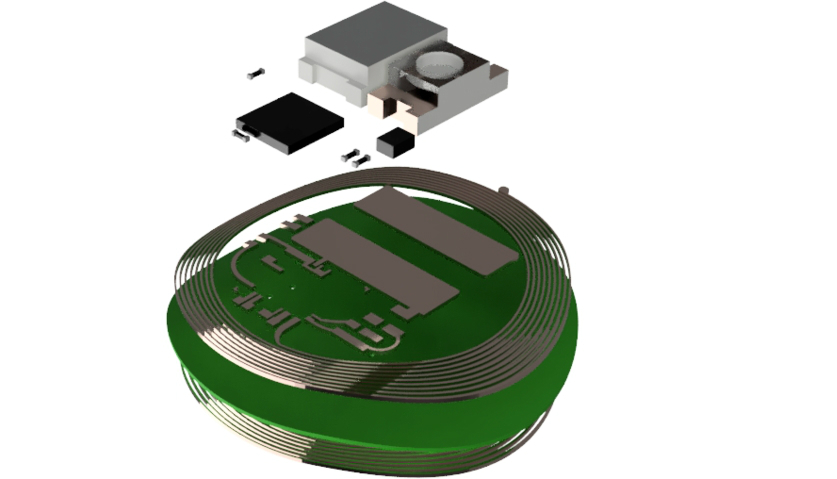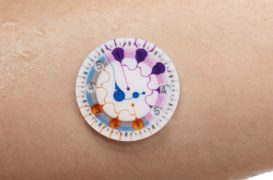LEO Pharma teams up with Wearifi for dermatology research wearable

LEO Pharma is developing a wearable device based on miniature sensors and plans to assess its clinical potential in dermatology drug development.
The pharmaceutical company’s Boston-based R&D innovation unit, the LEO Science & Tech Hub, will work on the device with Illinois’ Northwestern University’s Center for Bio-Integrated Electronics and its Wearifi spinout.
Wearifi is developing the world’s smallest, battery-free wearable device, using miniaturised sensors that are small enough to fit on fingernails (pictured above). Its partnerships to date include one with L’Oréal, plus funding from the US Department of Defense and the National Institutes of Health.
Anthony Banks, chief technology officer at Wearifi, said: “Wearifi’s miniature wireless devices allow for imperceptible and unobtrusive placement practically anywhere on the body and are currently used to monitor heart rate, respiration rate and UV exposure.
“Partnering with a leading biopharmaceutical company like LEO to leverage this mm-scale sensor technology could potentially open new avenues to advance skin health.”
LEO will work with Northwestern and Wearifi to evaluate whether the device and miniaturised sensor technology can inform and enhance drug development and treatment regimens by potentially identifying and measuring key disease-associated biomarkers.
Troels Marstrand, chief data scientist at LEO Science & Tech Hub, said: “Effectively bringing Wearifi products into the dermatology space will be a challenging endeavour, but one that will push boundaries and help us better understand our limits with regards to the relationship between technology and skin health.
“We have an opportunity in front of us to learn informative new details about our largest organ and potentially yield pioneering results for our industry.”
The project will begin with a proof of concept study run with dermatologists and engineers that will see them explore the feasibility of creating a wearable volatile organic compound (VOC) detector for continuous measurement of both external and internal VOCs. In addition to being the main source of human body odour, VOCs may also contain important metabolic process information.
 The deal with Wearifi comes one month after LEO Science & Tech Hub partnered with Epicore Biosystems, another Northwestern University spinout, on a wearable sweat sensor (pictured left) for the real time measurement of prognostic biomarkers. The partnership’s initial focus is on atopic dermatitis and aims to see if Epicore’s wearable sensor can be used to monitor patient response and inform treatment decisions.
The deal with Wearifi comes one month after LEO Science & Tech Hub partnered with Epicore Biosystems, another Northwestern University spinout, on a wearable sweat sensor (pictured left) for the real time measurement of prognostic biomarkers. The partnership’s initial focus is on atopic dermatitis and aims to see if Epicore’s wearable sensor can be used to monitor patient response and inform treatment decisions.












